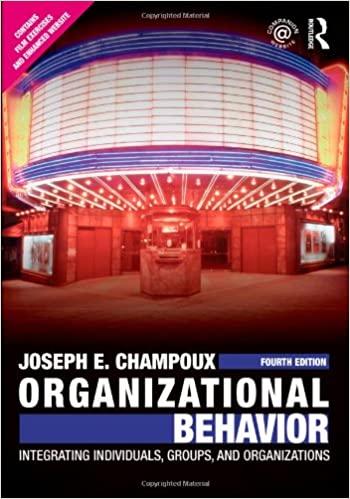Review the Active Listening section. Have you experienced any of the recommendations in that section? If yes,
Question:
Review the “Active Listening” section. Have you experienced any of the recommendations in that section? If yes, did active listening improve the communication processes where it was used?
ACTIVE LISTENING
With active listening, the listener is responsible for the completeness of a speaker’s message. A listener’s role in the communication process is not to passively absorb a spoken message and derive meaning from it. With active listening, the listener is responsible for hearing a speaker’s message correctly by accurately hearing the facts in a message and understanding the speaker’s feelings about the message. An active listener makes a deliberate effort to understand a message from the speaker’s viewpoint.
A message’s meaning includes its content and the sender’s feelings. In active listening, a listener attends to all verbal and nonverbal cues to get the total meaning. Verbal cues include message content, speed of speech, body movements, and the like. A listener asks questions to get the speaker to clarify a point. He might also rephrase the message until the speaker is satisfied that the listener understands. A manager can use active listening to help positively manage conflict. Active listening helps the manager understand the true wants of the parties to the conflict episode.
Active listening can have positive effects on the speaker, because the speaker knows that an active listener cares about the message, respects the speaker’s opinion, and wants to understand the speaker. Active listening gives speakers the sense that their message is important and that the listener is sincerely interested.
Step by Step Answer:

Organizational Behavior Integrating Individuals Groups And Organizations
ISBN: 9780415804646
4th Edition
Authors: Joseph E. Champoux





